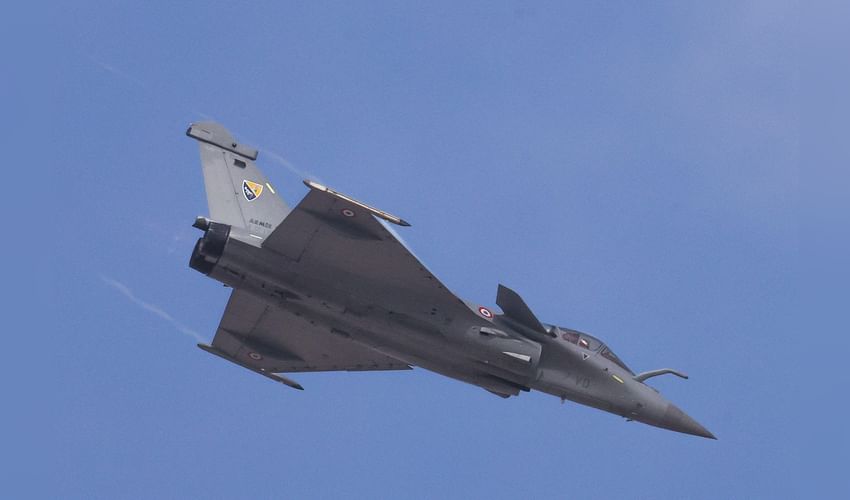World
China's Disinformation Warefare: A Calculated Attack on the Rafale and the Rafale and Global Arms Market

A recent report by the U.S.-China Economic and Security Review Commission has dealt a powerful blow to Beijing’s credibility: it alleges that China conducted a coordinated disinformation campaign targeting the French-made Rafale fighter jet, aiming to undermine both its reputation and its global sales. According to the commission, this smear operation followed the May 2025 India–Pakistan border clashes. China allegedly used fake social media accounts to circulate AI-generated and video-game-style images of “debris” purportedly from Rafales shot down by Chinese-supplied weapons. The objective was chillingly clear: to discredit the Rafale as unreliable, while positioning China’s own J-35 stealth fighter as the superior alternative.
The report goes even further to suggest that Chinese embassies aggressively pitched this narrative to foreign governments. In one case, they reportedly persuaded Indonesia to back away from a nearly finalized Rafale deal, strengthening China’s influence in its arms sales strategy. This is not just propaganda according to the commission, it is geopolitics through disinformation, wrapped in the veneer of diplomatic outreach.
What makes this disturbing is how Beijing allegedly exploited a genuine military conflict to test and advertise its weapons. The Commission report claims that China “leveraged the conflict to test and advertise the sophistication of its weapons,” treating the India-Pakistan clash as a real-world laboratory. Through this campaign, China seems to be executing a double-strategy: bolster its narrative and technology, and undercut rivals in the global defense industry.
From a strategic standpoint, this is deeply problematic. It suggests that China is not just playing an information war it is weaponizing disinformation to distort perceptions of military power. By casting doubt on the Rafale, it is not only undermining a competitor, but also trying to mold global defense markets in its favor. Moreover, this raises serious questions about ethics in international relations. If the allegations are accurate, China is effectively manipulating truth to serve its commercial and geopolitical ambitions. That’s not competition it’s influence operations dressed up as marketing.
To counter this, the international community should not just call out disinformation it must demand transparency and accountability. Countries considering fighter-jet purchases need to independently assess performance claims rather than accept Beijing’s narrative. And Western defense firms must press for clarity and integrity, pushing back when strategic discourse is polluted by propaganda.
This image is taken from REUTERS.



